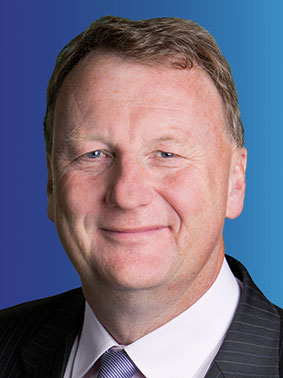
Over the past 35 years, we have seen the development of shared services and business process outsourcing. IT has been primarily utilised to increase the efficiency of the processes, without radically changing the processes themselves. During the next 10 years, we believe that headcount in the BPO industry will reach its peak. Subsequently, increased automation, coupled use of voice recognition and translation software will lead to “lights out” processing in darkened server farms watched over by a small group of technicians and security guards.
In the beginning, which was approximately 35 years ago, shared service centres were captive (served their own organisation) and located within the home country. Developments in IT and communication led to offshoring, primarily to India for English language work, and outsourcing where external providers began to take over staff and responsibility for processes.
The fall of the Berlin Wall in 1989 opened up the former Soviet Bloc countries of Central and Eastern Europe to multinational corporations. Although the lack of purchasing power and the small populations meant the markets for western brands were still relatively small, the low wage costs were attractive to manufacturing companies, who lost little time in moving production capacity to countries such as Hungary. At first, components were transported to Hungary, assembled, and transported back to the home country for finishing, packing and distribution. As confidence in the skills of the Hungarian labour force grew, companies began to transfer more complex activities, such as the manufacturing of the Microsoft Xbox and the Audi TT car.
By 2000, a number of companies had established R&D groups in Hungary and realised that the pool of well-educated, multilingual young graduates could be successfully deployed in shared service centres. During the following 15 years, over 50 companies set up such centres in Budapest alone, including Indian Business Process Outsourcing (BPO) providers such as Genpact and TCS, employing more than 35,000 people.
In the early days, the processes tended to be the more rudimentary purchase to pay and order to cash but over time, these processes were either partially automated or transferred to even lower cost locations in the Far East, and replaced by more complex processes including financial and statutory reporting, management reporting and treasury operations. In this way, headcount at existing centres remained stable whilst new centres continued to be set up.
IT was generally deployed to make the processes more efficient and tended to focus on document scanning and management, workflow optimisation and call centre automation. There appeared, however, to be a reluctance to use cutting-edge technology to completely automate and re-engineer the existing, legacy processes. The reasons for this include:
- Companies were achieving sufficient savings from cost and process efficiencies derived from offshoring and outsourcing.
- Captive centres are less likely to innovate as they may lack the necessary specialist in-house expertise and need to demonstrate a return on the initial investment incurred in establishing the centre before committing to the additional investment required to automate and re-engineer processes.
- BPO companies have access to the technical knowledge but may be reluctant to deploy it as they fear disruption to a revenue business model that is based on headcount.
During the next 10 years, we believe that the headcount working in the shared services and BPO sectors in places like Budapest will peak as companies prepare to automate and radically re-engineer their business processes. This will be driven by factors such as:
- increasing pressure to manage costs as opportunities for revenue growth become harder to find;
- demographic pressures as European populations decline and a lack of welcome for economic migrants from other continents;
- re-instatement of physical borders and controls;
- increased national regulation over data privacy and data transfer;
- increase in “virtual centres” with team members dispersed over a number of locations rather than concentrated in one building;
- rising compliance costs.
Pioneers will begin automation, starting with the more basic processes and, as they gain more confidence, move to greater levels of complexity. Decisions will be made as to whether to retain the technology in-house whilst renting server space from companies like Amazon, or whether to outsource the automation and data processing to the BPO countries or their successors. The trend towards buying “software as a service” will continue. Most of the technological components to achieve this move, already exist, but the most successful companies will be those that configure the components in an innovative, cost effective and secure manner but are able to extract value and insights from the data being processed to provide a competitive advantage.
We do not foresee a dramatic reduction in overall headcount during this period. However, roles will continue to evolve as demand increases for data mining, data analyst and cyber security resources. Governments and fiscal and regulatory authorities will demand increased transparency and will pass the responsibility for policing companies’ and individuals’ transactions to service providers, as we are already seeing in respect of anti-money laundering legislation.
In 20 years’ time, most business processes will have been automated and re-engineered. Technology that is considered either niche or risky today, such as that behind the bitcoin digital cryptocurrency, will have become mainstream and, as discussed in The Economist on 31 October 2015, have the potential to remove the need for human intermediaries in a number of areas. The extent of the reduction in physical headcount still employed in performing business processes will be determined by factors such as public trust in the technology, advances in cyber security and a country’s political and sociological need to create employment opportunities for its inhabitants.
In 30 years’ time, it is possible to foresee a world where business processing is fully automated and managed by a team of sentient robots realising the vision of “lights out” processing in darkened server farms. But how will our children and grandchildren employ themselves?
Mark Bownas joined KPMG in Darlington, England, in 1987. In 1991, he transferred to KPMG’s office in Budapest, Hungary, where he spent 23 years providing audit and advisory services to local and multinational investors, including numerous captive shared service centres. He returned to the UK towards the end of 2014 and works as a Partner in the Global Sales and Markets team.



